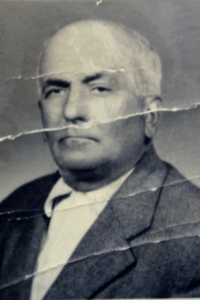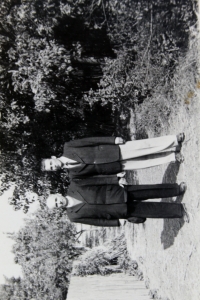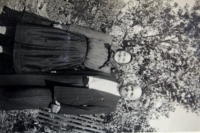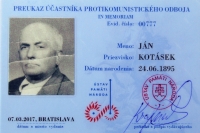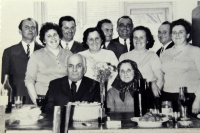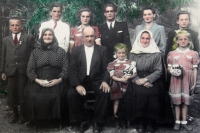After the intervention of the communist authorities against priest, one was left dead and father of ten children was seriously injured
Download image
Anna Šuryová was born in Dolna Krupa on April 8, 1941. She grew up in a large family as the youngest of ten siblings. Father Ján Kotásek was a farmer, mother Uršuľa took care of the family. In 1949, the totalitarian power organized the so-called Catholic action, which was accompanied by riots. On June 30 of that year, Anna was playing in front of the house. She saw women with rakes and stones in their hands running up the village. Someone fired from behind the parsonage and the bullet killed one man. Ján Kotásek was standing by the statue, from which the projectile bounced and hit him in the right hand. They had to take him to the hospital. A curfew was declared in the village immediately after the police intervention. Anna’s brother Ján was sitting at home at the time of the incident when a friend came to him and informed him that his father had been shot. The two friends rushed to the church to shoot in the air. They wanted to defend the priest and at the same time scare off the attacker. The next day, the police came for brother Ján. Someone reported him. Ján served five years in prison in Leopoldov. Václav, another of Anna’s brothers, also experienced the sorrows of life in prison. He was returning from school by bus when the curfew was announced. He got out of it, someone spotted him and reported him. The court sentenced him to an unconditional prison sentence only for violating the curfew. Václav spent over a year in a forced labor camp in Nováky. Ján, Václav and seven other citizens experienced the reprisals of the ruling fist first hand. Anna’s father left the hospital with a crippled hand and could not even get a job. Of the ten children, half were still dependent. The elders already had their families, but they tried to help others as much as possible. After completing compulsory schooling, Anna did not continue further education and changed several jobs during her life. The tragic case in Dolná Krupa was never properly investigated.
